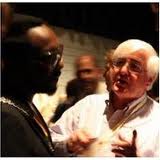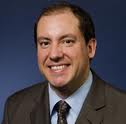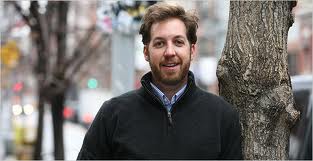

This post is part of my ongoing Series on Angel Investing. It was also republished on Fortune Finance, where I am an occasional contributor.
As we all know by now, all the major-league superangels have pretty much raised their own small funds of late. Conway’s got SV Angel, Senkut runs Felicis, Maples runs Floodgate, Sacca’s got lowercase capital, McClure of course runs 500 Hats, and Dixon’s one of the crew at Founder Collective. Many of them of course still get called “superangels” by entrepreneurs, VC’s and by the media- and I’m certainly guilty of doing this as well. Recently, though, two guys I respect a great deal, Jerry Neumann and Mark Suster, have been quite adamant about why doing this is just wrong. Jerry actually took me to task in a very gentlemanly way here and we discussed it again in a recent one-on-one conversation. Mark of course came right out and called the superangel an extinct species when he recently spoke up at Columbia! I think he was only being slightly tongue-and-cheek.
Their main point is that once superangels actually start investing via these small funds, (thereby accepting other people’s money), they are officially VC’s and there are no “if, ands or buts” about it! Mark told me there’s absolutely no nuance to this issue when I asked him this recently.
So why does this even matter and who cares? I guess the deeper, "meta-level" importance of what they are saying is that no matter how great/prominent an angel you've been in the past, once you're managing LP money you can no longer 'masquerade' as a touchy-feely angel who is "all about the entrepreneur" in that you have a very strong fiduciary obligation to your investors. Nor should you be "calling-out" traditional VC's publicly as if you are really any different for that matter.
My take on this is that there is actually an important nuance to all this. In several of these funds what has actually happened is that a bunch of angels have joined together and thrown some capital into a fund structure. And sure, yes- it is a fund structure because they want to incentivize the guys who are actually running the operation on a day-to-day basis. But in my view there being a fund structure is not solely determinative of “what they are”- rather, what is determinative is how the investors in these vehicles see each other and their respective roles. In some of these funds the atmosphere is still all about a bunch of friends and fellow angels pooling some of their capital and letting one of their own (usually someone quite prominent) manage the day-to-day operations of what are essentially angel investments. The mentality and the incentives have not really changed too much just because there is a fund structure. So my point is that some of these groups are actually more like an angel groups than a venture capital fund. Most venture funds have some institutional investors (pension funds, university endowments, family offices) as LP’s. In the case of some of these “superangel vehicles”, it’s just a bunch of friends/fellow angels doing their thing without any hierarchies (ie. no MD's, Principals, Associates, etc.). The mentality is often “this is a good vehicle for me to support entrepreneurs, have fun and make some money with my friends”. Unlike a traditional venture fund, no one is making their living off the management fees- in fact- these fees often go into the basic expenses for administrating the “fund”.
I know I’m going to take some heat for this, so let me be clear. What I am saying is that some of these superangel funds may structurally resemble traditional VC funds, but they are something altogether different- and more akin to an angel group. I do believe that such entities merit a separate classification in our minds than traditional VC. I am also expressly not endorsing certain broad-brush critiques of VC motivations I have been hearing all year- in fact I disagree with almost all of them. In my opinion, VC motivations are really tied entirely to the quality and caliber of the people you are dealing with at the various funds.
I therefore declare that reports of the death of the so-called "superangel" have been greatly exaggerated. In fact I would submit that in Darwinian fashion he has mutated somewhat to adapt to the necessities of an evolving entrepreneurial ecosystem.
For Part 4 of this mini-series, click here.







